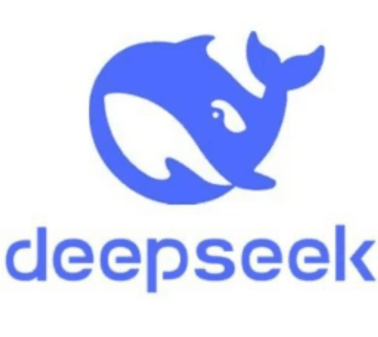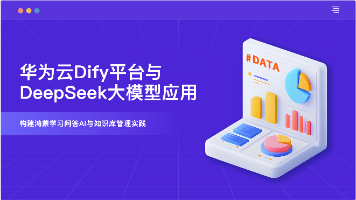SpringAI 开放 DeepSeek 直连!最新的 SpringAI 爆点你学会了吗?
通过 SpringAI 集成 DeepSeek,我们不仅获得了大模型的能力,更重要的是遵循了可持续演进的架构原则。将 AI 调用封装为领域服务为重要 AI 操作添加审计日志定期评估模型输出的业务一致性通过上面的快速预览内容,你应该可以对整体 SpringAI 的功能做一个简略了解。今后的文章中,我们将详细阐述 DDD 和 SpringAI 的真正实战型内容,敬请期待。
当 Java 遇见国产大模型
SpringAI 作为 Spring 生态中面向 AI 能力的集成框架,近期正式宣布对国产大模型 DeepSeek 的直连支持——这意味着我们终于可以像使用 OpenAI 一样,以标准化方式在 Java 项目中调用国产大模型!
这篇文章和以往的系列文章无关,属于快速查找型的文章,主要服务以下内容:
- 快速理解 SpringAI 的抽象设计哲学
- 快速配置 DeepSeek 直连通道
- 快速实现完整的对话与流式响应
- 简略生产环境最佳实践
一、SpringAI 的设计哲学
1.1 统一的 API 抽象
SpringAI 的核心价值在于统一不同 AI 供应商的差异化 API。无论是 OpenAI、Azure 还是 DeepSeek,开发者都通过同一套 ChatClient 接口进行操作:
java
代码解读
复制代码
public interface ChatClient { ChatResponse call(ChatRequest request); Flux<ChatResponse> stream(ChatRequest request); }
这种设计完美契合六边形架构思想,将 AI 能力作为可插拔的端口(Port)接入系统,业务核心逻辑则通过适配器(Adapter)与具体实现解耦。
1.2 配置即连接
通过 Spring Boot 的 application.yml,我们可以灵活切换不同 AI 供应商:
yaml
代码解读
复制代码
spring: ai: provider: deepseek # 只需修改这个值即可切换供应商 deepseek: base-url: https://api.deepseek.com/v1 api-key: ${DEEPSEEK_API_KEY}
这种配置方式与 Spring Security 的认证体系、Spring Cloud 的微服务配置中心天然契合,特别适合需要动态切换模型供应商的企业场景。
二、快速接入 DeepSeek
2.1 添加依赖
在 pom.xml 中引入 SpringAI 的 DeepSeek 模块:
xml
代码解读
复制代码
<dependency> <groupId>org.springframework.ai</groupId> <artifactId>spring-ai-deepseek</artifactId> <version>0.8.1</version> </dependency>
2.2 配置连接参数
在 application.yml 中配置 DeepSeek 的访问凭证:
yaml
代码解读
复制代码
spring: ai: deepseek: base-url: https://api.deepseek.com/v1 api-key: sk-your-api-key-here chat: options: model: deepseek-chat temperature: 0.7
这里我们启用了配置继承机制:全局配置可被具体 Chat 选项覆盖,实现不同业务场景的参数调优。
2.3 实现基础对话
创建服务层组件:
java
代码解读
复制代码
@Service @RequiredArgsConstructor public class DeepSeekService { private final DeepSeekChatClient chatClient; public String generateContent(String prompt) { Prompt request = new Prompt(new UserMessage(prompt)); return chatClient.call(request).getResult().getOutput().getContent(); } }
在 Controller 层暴露 API:
java
代码解读
复制代码
@RestController @RequestMapping("/api/ai") public class AIController { private final DeepSeekService deepSeekService; @PostMapping("/ask") public ResponseEntity<String> askQuestion(@RequestBody String question) { String answer = deepSeekService.generateContent(question); return ResponseEntity.ok(answer); } }
三、进阶功能实现
3.1 流式响应
对于需要实时反馈的场景,使用 Server-Sent Events (SSE) 实现流式传输:
java
代码解读
复制代码
@GetMapping("/stream") public Flux<String> streamResponse(@RequestParam String prompt) { return chatClient.stream(new Prompt(prompt)) .map(response -> response.getResult().getOutput().getContent()); }
前端通过 EventSource 监听:
javascript
代码解读
复制代码
const eventSource = new EventSource('/api/ai/stream?prompt=如何设计分布式系统'); eventSource.onmessage = (e) => { console.log(e.data); // 实时获取片段 };
3.2 结构化输出
通过指定响应格式,让模型返回结构化数据:
java
代码解读
复制代码
@Bean public PromptTemplate userPromptTemplate() { return new PromptTemplate(""" 请将以下用户反馈分类: {feedback} 按 JSON 格式返回: { "category": "bug|feature|compliment", "severity": 1-5 } """); } public AnalysisResult analyzeFeedback(String feedback) { Prompt prompt = userPromptTemplate().create(Map.of("feedback", feedback)); String json = chatClient.call(prompt).getResult().getOutput().getContent(); return objectMapper.readValue(json, AnalysisResult.class); }
四、生产环境最佳实践
4.1 安全加固
在 Spring Security 配置中保护 AI 端点:
java
代码解读
复制代码
@Bean SecurityFilterChain securityFilterChain(HttpSecurity http) throws Exception { http .authorizeHttpRequests(auth -> auth .requestMatchers("/api/ai/**").hasRole("AI_USER") ) .oauth2ResourceServer(OAuth2ResourceServerConfigurer::jwt); return http.build(); }
4.2 AI 也有的性能调优
通常默认配置都可以满足要求,但是当需要调优时,修改以下参数即可自定义配置。
yaml
代码解读
复制代码
spring: ai: deepseek: client: connect-timeout: 5s read-timeout: 30s max-connections: 50
4.3 监控告警
推荐使用 Micrometer 集成监控指标,代码非常简单如下所示:
java
代码解读
复制代码
@Bean MeterRegistryCustomizer<MeterRegistry> metricsCommonTags() { return registry -> registry.config() .commonTags("ai.provider", "deepseek"); }
五、架构思考:AI 如何融入现有系统
在典型的领域驱动服务架构中,建议将 AI 服务定位在应用层与领域层之间:
markdown
代码解读
复制代码
用户界面层 ↓ 应用服务层 → AI 服务代理(处理 prompt 工程) ↓ 领域模型层 ↓ 基础设施层(SpringAI 实现)
这种设计保证了:
- 领域模型不依赖具体 AI 实现
- 应用服务控制 AI 的上下文组装
- 基础设施层实现技术细节
结语
通过 SpringAI 集成 DeepSeek,我们不仅获得了大模型的能力,更重要的是遵循了可持续演进的架构原则。这样的架构刚好帮助我们逐步推进下面的架构设计原则:
- 将 AI 调用封装为领域服务
- 为重要 AI 操作添加审计日志
- 定期评估模型输出的业务一致性
通过上面的快速预览内容,你应该可以对整体 SpringAI 的功能做一个简略了解。今后的文章中,我们将详细阐述 DDD 和 SpringAI 的真正实战型内容,敬请期待。
更多推荐
 已为社区贡献4条内容
已为社区贡献4条内容









所有评论(0)